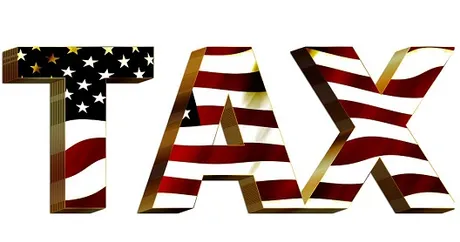 http://www.mardenkane.com/articles/consideraton-sweepstakes.html
https://definitions.uslegal.com/g/gambling/
https://www.law.cornell.edu/uscode/text/31/5362
https://patch.com/california/lajolla/bp--how-to-do-a-promotional-lottery-without-breaking-the-law
https://turbotax.intuit.com/tax-tips/jobs-and-career/can-you-claim-gambling-losses-on-your-taxes/L4lQ3IAWt
http://www.mardenkane.com/articles/consideraton-sweepstakes.html
https://definitions.uslegal.com/g/gambling/
https://www.law.cornell.edu/uscode/text/31/5362
https://patch.com/california/lajolla/bp--how-to-do-a-promotional-lottery-without-breaking-the-law
https://turbotax.intuit.com/tax-tips/jobs-and-career/can-you-claim-gambling-losses-on-your-taxes/L4lQ3IAWtI've been reading up on what constitutes gambling from a legal standpoint because I want to create my own lottery attached to Steem. I don't think it will be very difficult, and on top of that I believe I can make it 100% legal. After all, Unregulated Gambling is Crypto's First and Most Prominent Use-Case.
Even if the lottery is illegal there is no way to shut it down.
Conducting a lottery (other than certain charitable raffles) is a misdemeanor under California law.
Welcome to the power of decentralization. Pirating intellectual property is illegal. I've been caught over a dozen times because I never used a VPN. Did I ever get fined or see jail time? Nope! Just a slap on the wrist; not even that. Literally nothing happens except they turn off your Internet until you talk to your ISP about the incident. I'm not even sure if they even do that anymore. It's been a while and many companies have learned to adapt to peer to peer file sharing. Think about how long it took them to adapt. It's going to be 10 times worse once crypto decentralization rolls forward. P2P file-sharing is nothing compared to the blockchain.
Why can't the establishment punish citizens for breaking the law in a decentralized manner? Money. A lot of these IP laws exist to stop corporations from profiting off the hard work of other businesses. When you try to apply them to a single person they simply do not make sense.
Fining a corporation $10,000 per violation of copyright infringement often makes sense in context. Trying to fine an individual $10,000 for downloading a song makes zero sense, even though such cases have gone to court.
Yet, it doesn't matter. You might download 1000 songs and get fined $10,000,000, but does anyone expect you to actually pay up? No. Those days are over. They know that the cost of taking you to court is more than you'll ever pay them. They can't afford to sue poor people.
The same can be said about the lottery I'd like to create. If no one is in charge then there is no one to point the finger at. They can't go after everyone. Most law revolves around the idea that there must be a centralized authority.
However, wouldn't it be nice if we could create gambling applications that completely sidestepped the law? I believe I've found a way.
- Consideration
- Chance
- Prize
These are the three factors that the law looks at to determine if illegal gambling is taking place.
Consideration
This is the money you pay to be a part of the action. Sweepstakes often become legitimate by sidestepping this variable.
http://www.mardenkane.com/articles/consideraton-sweepstakes.html
Consideration can legally flow to the promotion sponsor; it just can’t be mandatory. Virtually all U.S. jurisdictions will permit a promotion where participants pay to play, as long as the sponsor provides a free alternative method of entry (AMOE). These alternative methods of entry can include; mailing, phone call to an 800 telephone number or e-mailing entrant’s information as outlined in the official rules.
There is also non-monetary consideration:
...substantial time or effort expended which benefits the Sponsor in some direct way.
Chance
Games of skill are not considered gambling. If you bet on a game of pool against a friend that doesn't count. Many arguments have been made that Poker (Texas Holdem) isn't gambling because it's a game of skill. So far, this argument hasn't gotten anywhere even though it is largely accurate. One hand of poker is 100% luck while 100,000 hands of poker is 100% skill.
Prize
Winning anything of value is considered a prize, but what if the prize is not guaranteed?
https://definitions.uslegal.com/g/gambling/
A person engages in gambling if he stakes or risks something of value upon the outcome of a contest of chance or a future contingent event not under his control or influence, upon an agreement or understanding that he or someone else will receive something of value in the event of a certain outcome.
How will my lottery be different?
Most sweepstakes avoid gambling regulation by allowing participants to enter free of charge if they want to. My lottery will require everyone to join free of charge. It's an honor system lottery. The host of the lottery will be responsible for determining who is allowed to join and who isn't. If the host lets in users that don't pay up after they lose, the host will lose reputation, and the lotto-dashers will be blacklisted.
I've been trying to think of a more decentralized solution that doesn't involve hosts, but it's too big of an extra complication to be worrying about right now. Besides, having hosts goes hand in hand with proof-of-brain. The hosts have to choose intelligently.
The biggest and most surprising thing I learned here is that skimming money off the top is still allowed. This means that we can start lotteries to fund Steem projects or literally anything else.
In addition, it provides a way to monetize my reputation system. Users with high reputation can charge a little bit for running the service, and this is totally legal because we've already avoided the consideration restraint.
A host could also rake money off the top for an even bigger lottery later, or to make up for the fact that there are bound to be a few lotto dashers that won't pay up. Hosts could set this money aside for a rainy day when they need to mitigate damages to their reputation. If a host pays the fees of the lotto-dashers then he obviously shouldn't lose any reputation. In fact, you might make the argument that he should gain reputation... until you consider that this mechanic would almost certainly be gamed.
Prize? What prize?
We've also eliminated the 'prize' restraint, because the prize is not guaranteed. There is nothing from stopping everyone in the lottery from refusing to pay. This dynamic sidesteps both the consideration and prize rule.
However, most users will pay when they lose, because if they don't they'll be blacklisted. Any host can also set restrictions on who they allow to enter. New accounts with zero reputation will often not be welcome except in the lowest stakes lotteries.
Keeping it small.
A decentralized lottery like the one I want to build won't have huge prize pools, but players will win much more often. For example, lets say you start up a private lotto with 10 friends/acquaintances on Steem. You each throw in 1 SBD and the winner get's 10 SBD. If you played 10 times and each person won once, this is a break-even situation.

Taxes
The break even situation is important because we don't want to have to pay taxes. This would be one of the worst overhead friction costs this service could incur (for various reasons). Just look at how annoying it is to pay taxes on gambling winnings.
The IRS requires you to keep a diary of your winnings and losses as a prerequisite to deducting losses from your winnings. Your diary must include:
- the date and type of gambling you engage in
- the name and address of the places where you gamble
- the people you gambled with
- and the amount you win and lose
Your gambling winnings are generally subject to a flat 25% tax.
Hm, yeah... no. Pass. I'm going to go out on a limb here and assume that most people don't even report their winnings unless presented with a document specifically saying that the winnings are being reported to the IRS. This actually happened to me way back in the day. I won a bad-beat jackpot in a poker room and received a $800 player share. Damn you W-2G form.
Not Centralized
You'll notice that many references to "The Sponsor" are made when talking about the legality of gambling. All laws simply assume that there will be someone in charge who takes the responsibility of getting in trouble. My lottery will have no such targets. Just look at some of these rules:
https://definitions.uslegal.com/g/gambling/
Federal law defines illegal gambling activity as:
- Is a violation of the law of the state in which it is conducted; and
- (Involves five or more persons who conduct, finance, manage, supervise, direct or own all or part of such business; and
- Has been or remains in substantially continuous operation for a period in excess of thirty days, or has a gross revenue of $2,000 in any single day.
It is very obvious that the legal system is not ready to handle the blockchain, and they never will be. Blockchain will evolve 1000 times faster than any traditional government.
Even if we completely ignore consideration, chance, and prize it will still be impossible/impractical to prosecute pseudonymous users who aren't making much (if any) money from using this service. Decentralization is a completely unknown animal, and I plan on giving it teeth.
Return from Research: Legal Definition of Gambling to edicted's Web3 Blog
